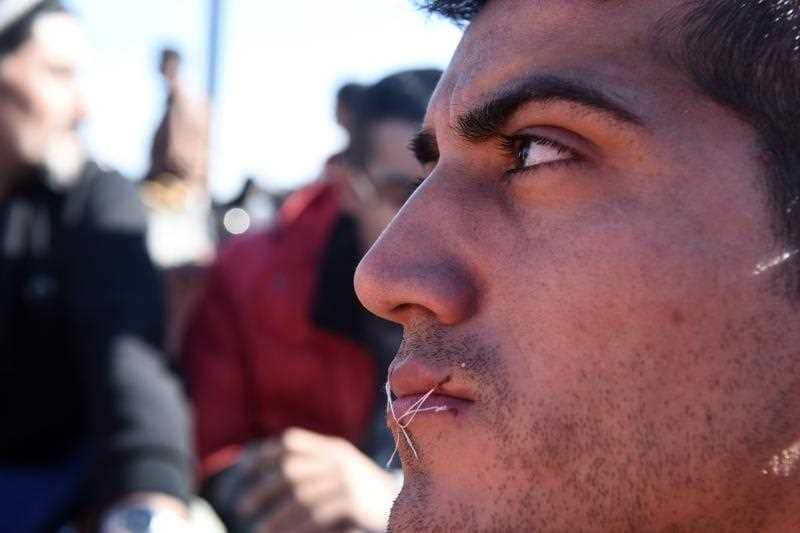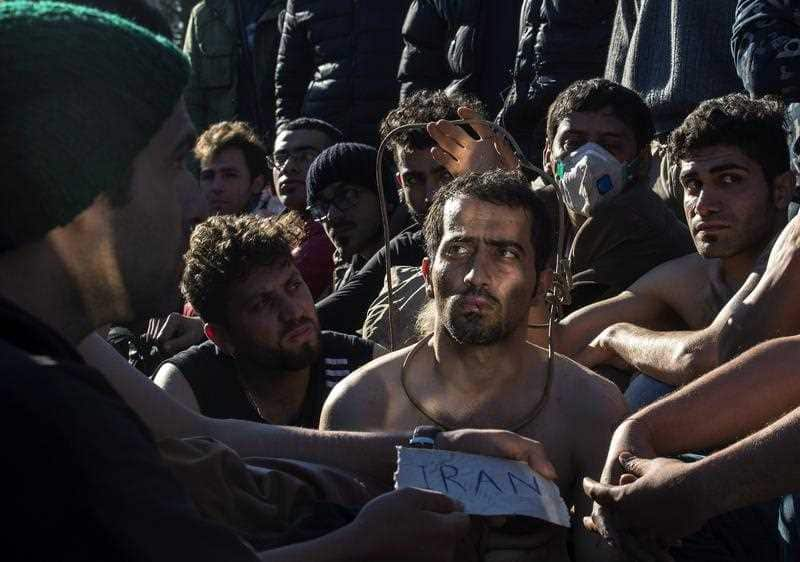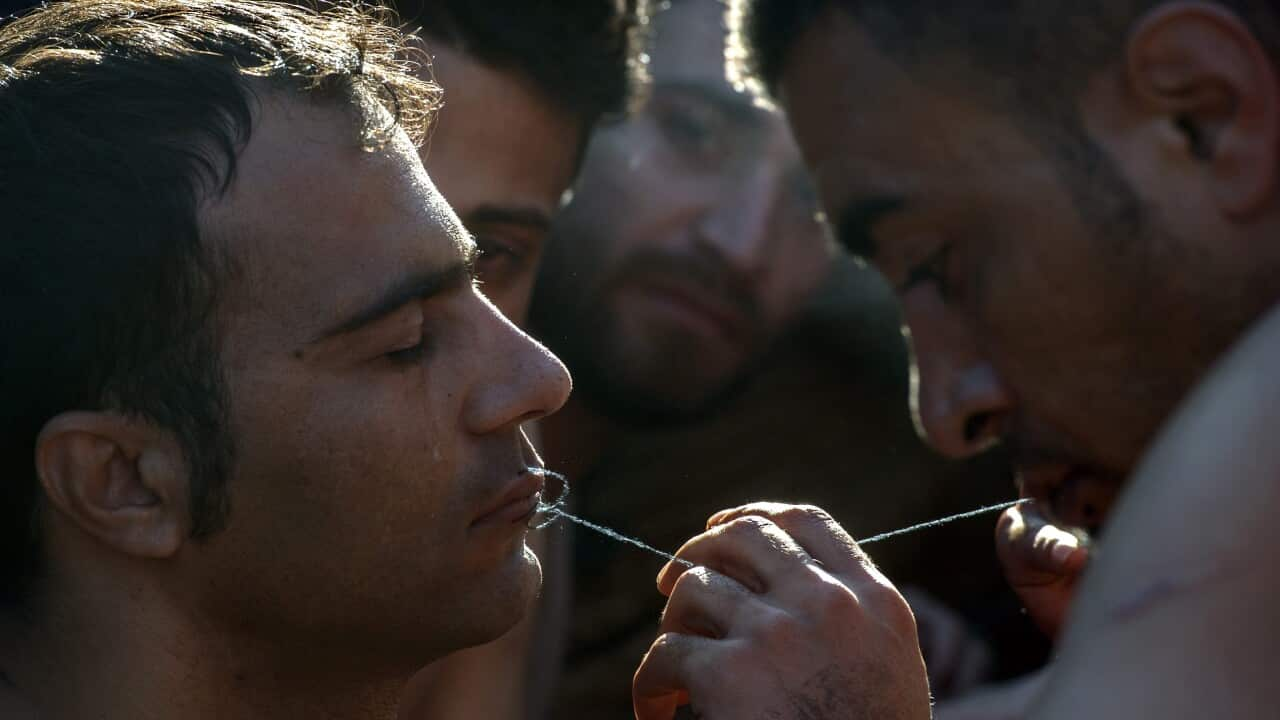A group of migrants marooned on the border between Greece and Macedonia opted for a rather extreme form of protest as authorities blocked their passage deeper into Europe. About six men, some believed to be from Iran's Kurdish minority, sewed their lips shut as a mark of their refusal to turn back toward their home countries.
Others chanted "Open the border!"
According to the BBC, the protests stem from a decision by Balkan countries to let in refugees only from Syria, Afghanistan and Iraq, a move that came in the wake of the Paris terror attacks earlier this month. Dozens of would-be refugees from other nations, including Iran and Pakistan, carried out a hunger strike in a Greek village near Macedonia. It highlighted the complicated separation between the international community's response to refugees fleeing war zones, and myriad others who, while classified as "migrants," may also be seeking to escape hardship and persecution.
It highlighted the complicated separation between the international community's response to refugees fleeing war zones, and myriad others who, while classified as "migrants," may also be seeking to escape hardship and persecution.

A migrant sits in no-man's land with his mouth sewn shut during a protest near the village of Idomeni at the Greek-Macedonian border, on Monday, Nov. 23, 2015. Source: AAP
An emailed statement last week from the office of Macedonia's Prime Minister Nikola Gruevksi insisted that the country was keen to aid the flow of refugees.
"Geography has laid this issue at our doorstep and we are proud to ensure refugees safe passage through our nation's northern border and toward final destinations in other European Union nations," it read. "With the flow of refugees through our borders growing from 600 to now more than 7,000 a day, our nation of approximately 2 million citizens has prioritized the human rights and dignity of more than 520,000 refugees transiting through our nation over the past 10 months."
But it urged a more "coordinated and European-wide response" in the aftermath of "the attacks in Paris and ahead of the coming winter months."

Several migrants, with stitched mouths in a sign of protest, sit in front of police cordon after they were barred from crossing the border, near Gevegelija, The Former Yugoslav Republic of Macedonia, 23 November 2015. Source: AAP
Share

